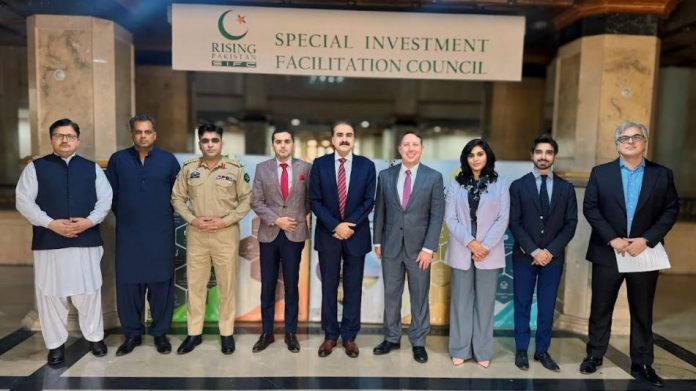DNA
Islamabad, 25 Jun: The government has disallowed 25% Sales Promotion, Advertising and Publicity (SAP) expense creating a significant marketing cost especially to multinationals that rely on advertising to sell fast moving consumer goods (FMCG). This means a higher tax liability for foreign companies, already struggling with current macroeconomic conditions. It also means an anti-competitive and discriminatory landscape targeting foreign investors. A delegation from the American Business Council held meetings in Islamabad today on this matter with Federal Minister for Investments, Aleem Khan; Chairperson of Senate Standing Committee, Finance, Saleem Mandviwala; Members of the Special Investment Facilitation Council (SIFC); and Secretary Finance, Imdad Ullah Bosal. As the apex American chamber of Commerce in Pakistan they shared their urgent concerns.
Speaking about the issue, Sami Wahid, Managing Director of Mondalez Pakistan and a Member of American Business Council said, “In the eventuality that such SAP expenses are disallowed, MNCs will have no option but to reduce outlays made on advertising and publicity to keep their balance sheets out of the red. It will put them at a disadvantage in comparison to local competitors. Significant presence of MNCs in advertising has a far-reaching impact on the economy and such punitive fiscal measures will not only jeopardize the already fraying advertising and media industry but also stifle innovation in media practices.”_
The delegation of American Business Council also included, John Letvin, Economics Counselor, US Embassy; Aisha Sarwari, Senior Director Public Affairs Coca-Cola Pak-Afg; Jamil Mughal, COO, McDonalds; Khurram Qamar, Director External Affairs Philip Morris (Pakistan) Limited; and Basit Pirzada, Head of Public Policy, PepsiCo. They represent about 60 American companies’ membership in Pakistan that have invested billions of dollars in the past few decades.
When a global brand expands into a new market, it requires a substantial investment in marketing and advertising, typically accounting for almost 25-30% of net revenue in the first three years to establish its presence. Retroactive applications, after the financial year has closed, will damage the country’s credibility as a favorable investment hub.
While Pakistan is looking to reinvent its image as a viable investment destination and build upon grounds such as the United States and Pakistan Tax Treaty and an Investment Framework Agreement for equal treatment, this budget proposal will dissuade investors seeing large markets from considering Pakistan in the future.

















